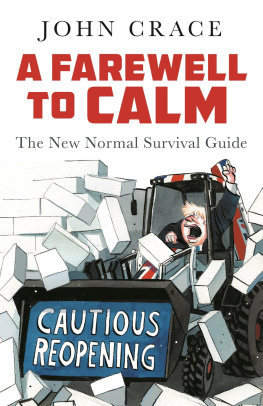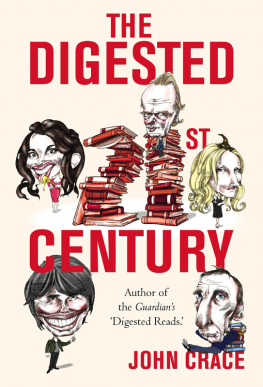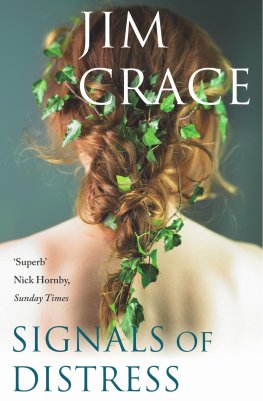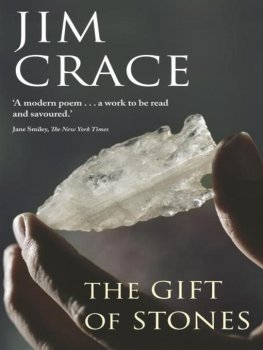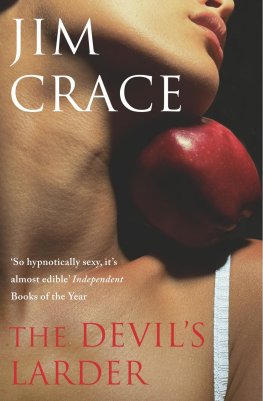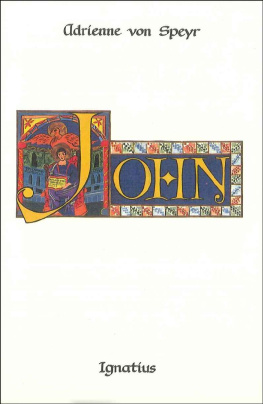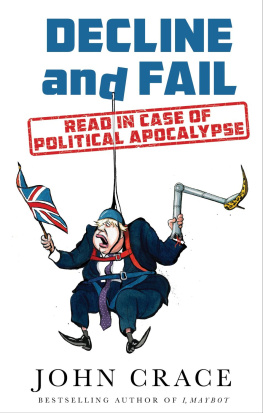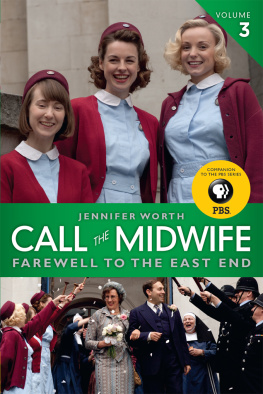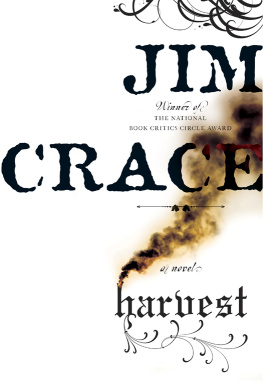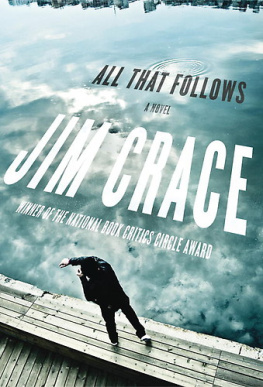John Crace - A Farewell to Calm
Here you can read online John Crace - A Farewell to Calm full text of the book (entire story) in english for free. Download pdf and epub, get meaning, cover and reviews about this ebook. year: 2021, publisher: Guardian Faber Publishing, genre: Detective and thriller. Description of the work, (preface) as well as reviews are available. Best literature library LitArk.com created for fans of good reading and offers a wide selection of genres:
Romance novel
Science fiction
Adventure
Detective
Science
History
Home and family
Prose
Art
Politics
Computer
Non-fiction
Religion
Business
Children
Humor
Choose a favorite category and find really read worthwhile books. Enjoy immersion in the world of imagination, feel the emotions of the characters or learn something new for yourself, make an fascinating discovery.
- Book:A Farewell to Calm
- Author:
- Publisher:Guardian Faber Publishing
- Genre:
- Year:2021
- Rating:5 / 5
- Favourites:Add to favourites
- Your mark:
- 100
- 1
- 2
- 3
- 4
- 5
A Farewell to Calm: summary, description and annotation
We offer to read an annotation, description, summary or preface (depends on what the author of the book "A Farewell to Calm" wrote himself). If you haven't found the necessary information about the book — write in the comments, we will try to find it.
A Farewell to Calm — read online for free the complete book (whole text) full work
Below is the text of the book, divided by pages. System saving the place of the last page read, allows you to conveniently read the book "A Farewell to Calm" online for free, without having to search again every time where you left off. Put a bookmark, and you can go to the page where you finished reading at any time.
Font size:
Interval:
Bookmark:
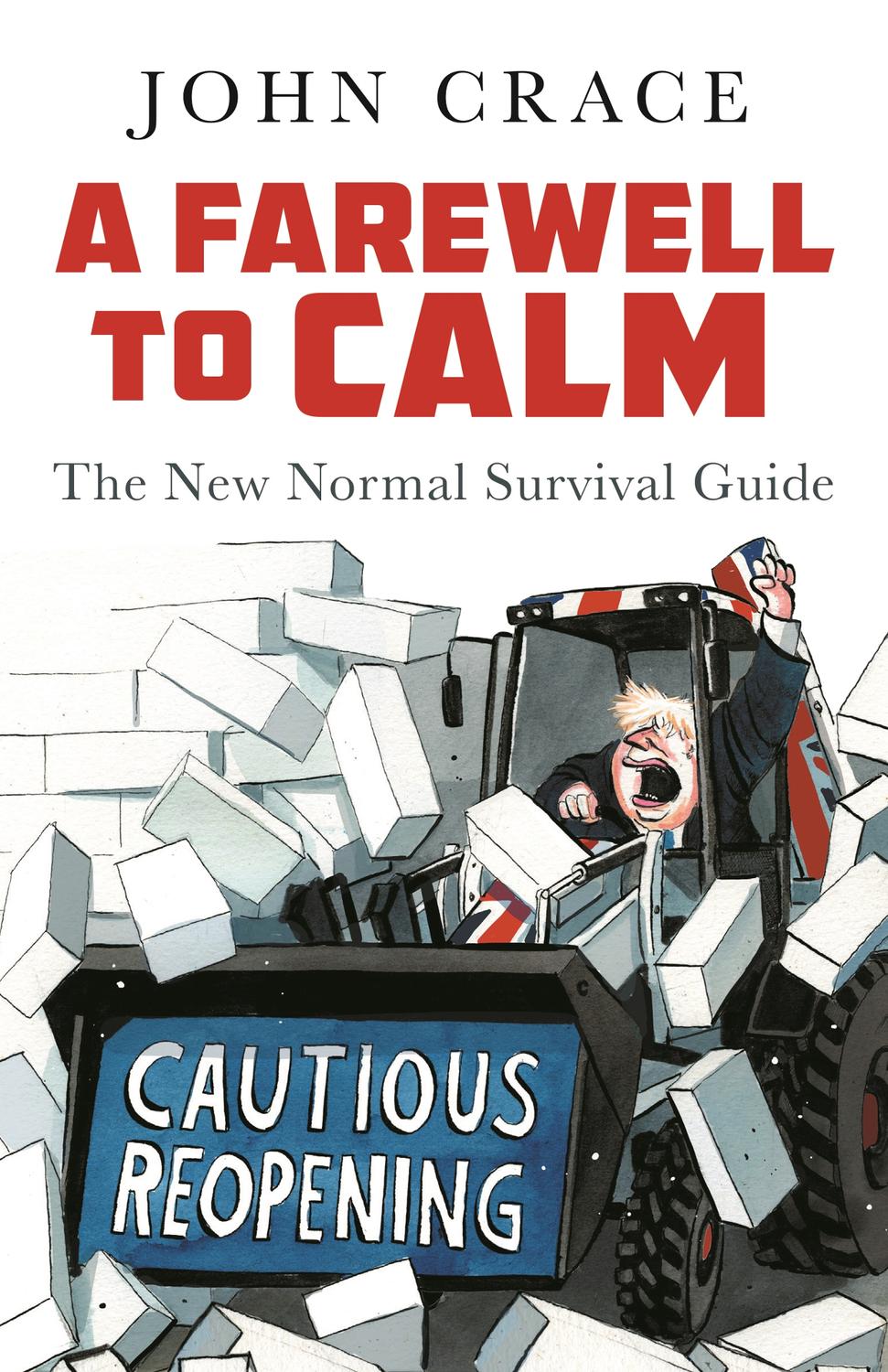

For Robbie and Laila
It was almost enough to make you miss Theresa May. At least there had been an integrity to her incompetence. You could count on her to be doing the wrong thing for the right reason. And her speeches did generally conform to normal syntax, even if they were almost entirely meaningless.
But with Mays resignation and the election of Boris Johnson as the new Conservative leader and hence prime minister in July 2019, it felt as if we were in the political Wild West. A one-man amoral no-go zone, whose prime motivation was his own survival and who could only talk in bursts of white noise.
Johnson had breezed through life, failing effortlessly upwards while happily trashing the lives of all those with whom he came in contact. For him, being the prime minister was merely a position of entitlement rather than of responsibility. The ideal job for someone predisposed to laziness and arrogance, someone for whom the idea of any preparation was an unthinkable admission of failure.
So its fair to say Boris was in for something of a wake-up call. Not least in his first four months in the job, when just about everything that could go wrong, did. As ever, it was Brexit that exposed not only the fault lines in the House of Commons, but also those within the Conservative Party itself. Johnson had always been adamant that he would die in a ditch if the UK had not left the European Union by 31 October, but mostly he looked as if he was dying on his feet.
It was nothing short of chaos. First, there had been the case of the five-week prorogation that never was, ordered by the Queen in late August on Boriss advice. Boris had insisted that the suspension was what parliament really wanted, as it would give MPs plenty of free time to get on with other things. And if parliament had not wanted to be prorogued, it would have made its feelings clear through interpretive dance. The reality was that Johnson and Dominic Cummings, his chief political adviser wanted to cut short the amount of time the Commons would have to debate the Brexit bill. After all, if parliament wasnt sitting, then there was no way the government could be defeated.
Despite Johnson insisting he had done nothing wrong, the Supreme Court unanimously ruled that the government had acted illegally in calling for the prorogation. Parliament was back in business the next day, and not long after Her Majesty was in the Lords delivering a Queens Speech that everyone knew was just fantasy, an election manifesto at best. The Queen made no effort to disguise her feelings at being misled over the legality of the prorogation something to which she had been obliged to give her assent and her delivery of the speech felt more like an exorcism, a desperate purge of the toxic waste that had been forced on her by a prime minister she had come to detest.
Then there were all those votes in the Commons that he had lost, starting with the bill to rule out a no-deal Brexit. Twenty-one Tory MPs, including Ken Clarke, Philip Hammond and Nicholas Soames, had voted against the government by backing the motion their party had always said it didnt want. Their punishment was to have the whip withdrawn, leaving Boris with a majority of more than minus 40.
Johnson had also three times demanded a general election he had repeatedly said he didnt want, but none of the opposition leaders obliged. Under the Fixed-Term Parliaments Act of 2011, the government needed a two-thirds majority to get its way. It didnt even come close. As far as the opposition was concerned, Boris could go whistle. If it was all the same to him, they would wait until the Queen had given royal assent to the bill blocking a no-deal Brexit. His reputation for dishonesty preceded him.
Alongside the many lost votes was the betrayal of Northern Irelands Democratic Unionist Party. At the DUPs conference in November 2018, Johnson had said no British Conservative government could sign up to regulatory checks and customs controls along the Irish Sea. To do so would put the whole of the Union at risk. But now he had agreed a deal that did just that.
We leave whole and entire, he had declared. Apart from Northern Ireland. People would say he had thrown the DUP under a bus, but that wasnt fair. He had thrown them under a train. Far more efficient. He had done away with the temporary backstop by turning it into a permanent full stop. Genius. And remarkably, the hardline Tory Brexiteers of the European Research Group, who had always insisted they would stand by the DUPs demands for Northern Ireland, found that they could dump them too.
On and on the chaos went, with the government losing vote after vote and the Commons even sitting on a Saturday. Nor was it just the Tories who were confused. Labour, under the leadership of Jeremy Corbyn, was also confused. It both wanted an election and didnt want an election. It wanted an election because thats what opposition parties were supposed to want, but it also didnt want one because the polls indicated Labour would beresoundingly beaten. It also wanted to get Brexit done, but had no idea what version of Brexit it was that it wanted to get done.
The Tories, meanwhile, wanted an election, but didnt know how to get one or when. They would also quite like Johnsons Brexit deal to pass, while secretly wishing they had voted for Theresa Mays rather better deal when they had had the chance. What was even weirder was that this was the new normal and no one found any of this to be the slightest bit odd.
But something had to give, and in the end it was Labour. With Johnson having secured a Brexit extension beyond 31 October, Corbyn instructed his MPs to vote for a general election in December. It turned out that no one was surprised or bothered that the prime minister hadnt kept his promise to die in a ditch. For the first time in months, both Boris and Cummings began to relax. They could see that the end was in sight.
The Tory campaign kept things simple: a three-word slogan of Get Brexit Done, a promise to be the Peoples Government, a commitment to levelling up the disparity in income and prospects around the country, and a pledge to build 40 new hospitals.
And things became simpler still when Nigel Farage, whose Brexit Party had won the European elections in May, chose to stand down all 317 of his candidates who had been due to contest Tory-held seats. The rationale was that Boriss deal was good enough, and he didnt want to take the risk of splitting the pro-Brexit vote and allowing Labour to sneak up on the rails. The net effect was that Nigel saw his party plummet from 17% to 4% in the opinion polls. Call it hubris, but it was Nigel who turned the Nigel Party into an irrelevance.
Meanwhile, Labour struggled to make any headway. It never fully shook off allegations of anti-Semitism within the party, while Corbyns personal ratings were consistently disastrous. Even two press conferences held to expose leaked information that the Tories were planning to privatise the NHS and put a hard border down the Irish Sea amounted to nothing. Voters had never really expected Johnson to tell the truth, so the revelations were greeted with general indifference.
This would be less of an election and more of an unpopularity contest. Boris and Corbyn were widely disliked and mistrusted throughout the country. All that was at stake was which leader was hated the least. It was a race that Johnson won at a canter, with a landslide majority of 80 seats. The country was sick of Brexit and just wanted it over and done with. It was also sick of the old politics and wanted a prime minister who would do things differently. No one really expected Johnson to deliver on all his promises, but they were less worried about that than the promises on which Labour might deliver.
Font size:
Interval:
Bookmark:
Similar books «A Farewell to Calm»
Look at similar books to A Farewell to Calm. We have selected literature similar in name and meaning in the hope of providing readers with more options to find new, interesting, not yet read works.
Discussion, reviews of the book A Farewell to Calm and just readers' own opinions. Leave your comments, write what you think about the work, its meaning or the main characters. Specify what exactly you liked and what you didn't like, and why you think so.

